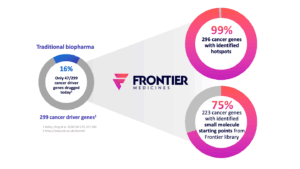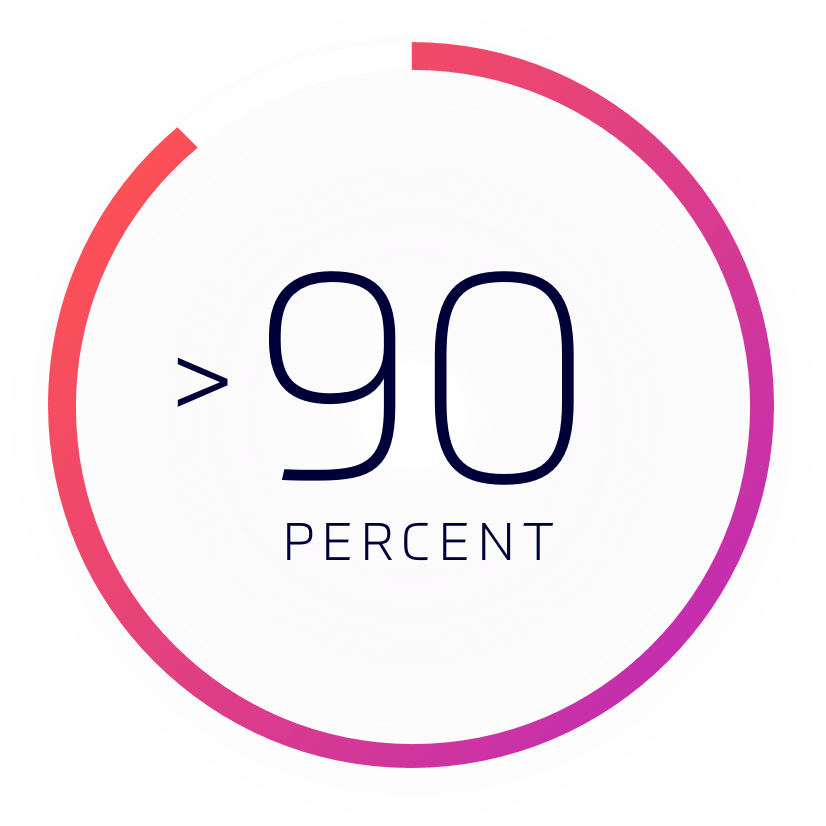Science & Platforms
Scientific Approach
A New Era for Covalent Small Molecule Drug Development
Enabling transformative access to therapeutic targets
To date, 85% of human proteins are considered undruggable and have not been targeted, despite many being known drivers of disease. This is because often well-validated therapeutic targets do not contain classical binding sites, making them intractable for traditional methods. By looking deeper into the human proteome than previously possible, Frontier has changed this.
Less than 10% of human proteins are accessible to small molecules
With The FrontierTM Platform we now have access to over 90% of human proteins
The FrontierTM Platform: Chemoproteomics & AI powered covalent drug discovery
Accessing formerly undruggable cancer drivers
Frontier is developing precision medicines against disease-causing proteins that the biopharma industry has not been able to drug with traditional approaches. Our FrontierTM Platform combines chemoproteomics, and AI to uncover covalent binding sites & ligands on proteins, making them accessible to therapeutic intervention by small-molecule covalent drugs.



